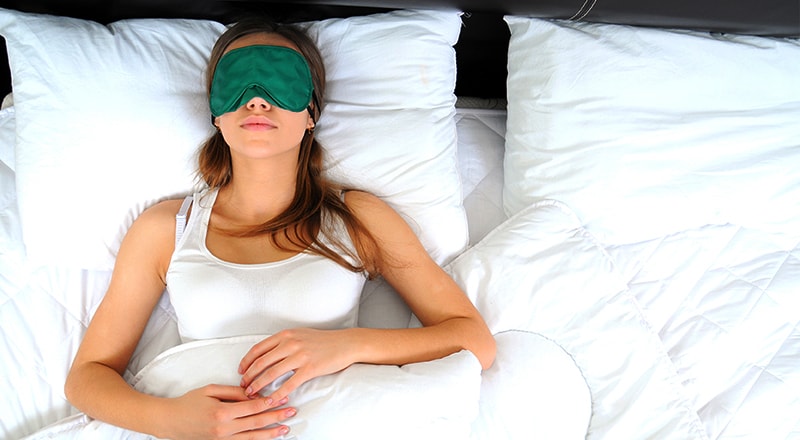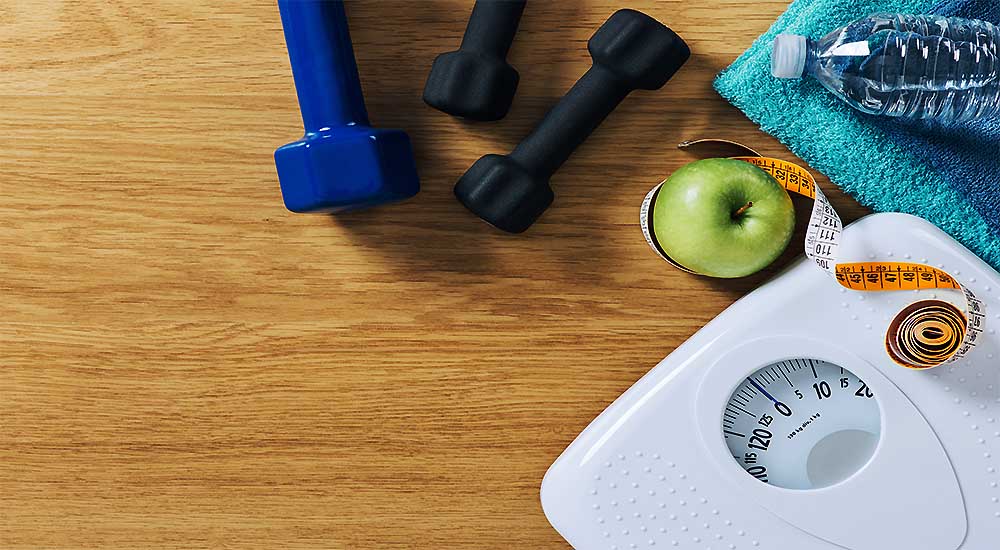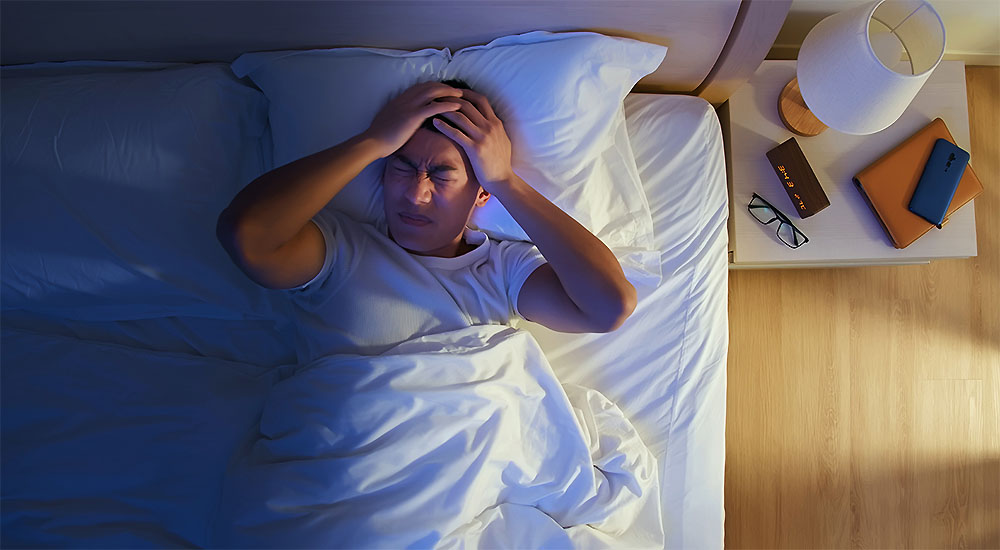Hacks for a Better Night’s Sleep

Hacks for a Better Night’s Sleep
I got inspired by my last post on pillows to take this opportunity to talk more about sleep. I view sleep as one of the most vital parts of my health, and I’m going to explain why you should too.
Most of us know the “ideal” recommendation of 8 hours of sleep per night, some might scoff at that, thinking it’s impossible, and some might think that’s not enough. The truth is there are some variations when it comes to sleep, as well as the fact that everyone is different, which leads to some people feeling great on less than the recommended amount. Sleep quality is superior to quantity.
In this blog I want to answer some of the common questions I hear about sleep:
- Are 8 hours really needed? What happens if my life doesn’t allow for 8 hours?
- How does my friend/spouse/co-worker survive in 4 hours?
- Why is sleep so good for my health?
- What can I do to increase my quality of sleep, regardless of the hours I’m able to sleep?
According to the National Sleep Foundation, the recommended hours of sleep are as follows for a variety of age ranges:
Teenagers 14-17 years: 8-10 hours
Young Adult 18-25 years: 7-9 hours
Adult 26-64 years need 7-9 hours
Older Adult (over 65 years): 7-8 hours.
As presented by the National Sleep Foundation, it appears the 8 hour rule is a good one to follow.
However, I want to try and provide anyone reading this blog with some information they may not have come across before.
With that said, a study published in 2010 involving 444 participants shows the ideal number of hours to fall between 6.5-7.5 hours of sleep. As with all studies you need to know the specifics, and this one was a 5-year study where all participants were women averaging 67.6 years old. However near or far you are from this age range and gender, the point is that the 8-hour rule is getting challenged with some legitimate research to back it up. So what does this mean for you?
As a chiropractor in Silicon Valley, we see some of the world’s busiest and hardest working people who find 8 hours of sleep difficult if not impossible to get nightly. The good news is that you might not actually need a full 8 hours, but it can get what you need from 6.5-7.5 hours. Don’t forget that individuals are different and ultimately you will need to be honest with yourself and how you feel after a certain number of hours of sleep. Keep in mind what researchers, your doctors, and people who study sleep are suggesting, and then find your own “sweet spot” per night. The above two studies illustrate that although there are some variations in optimum sleep amounts, there still aren’t any studies suggesting that your friend getting 4 hours of sleep is doing himself any long-term favors, quite the contrary.
Quality > Quantity
In today’s world, it can be difficult to not only get enough hours of sleep but also good quality sleep. The common issues affecting people’s ability to get good quality sleep include:
- Caffeine consumption in the latter part of the day.
- Blue light emissions right before bedtime. (This includes lights in your house, TV, laptop, phones, etc). This is a great topic to take a deep dive into in the future, but suffice to say melatonin (your sleep hormone) gets suppressed by blue-light emissions, making falling asleep that much harder, and causing your brain to keep you more awake.
- “Netflixing” – shows such as Stranger Things and House of Cards can easily induce binge-watching habits, but keeping your brain active late into the night can make it that much more difficult to fall asleep.
Tips to help you get the highest quality sleep:
- Complete Darkness: If you aren’t sleeping in pure darkness, you’re keeping your brain more awake. If a lot of light gets into your bedroom, you would benefit from an investment in blackout shades. Every minute counts so if you’re usually at the lower end of the recommended hours per night do what you can to achieve total darkness.
- Get to bed before 11 pm. After 11 pm the body will tend to release more cortisol (the hormone that causes you to gain weight and increases inflammation) in order to keep you awake longer.
- Start winding down 2 hours before bedtime. This means no long gym sessions right before bed, start getting into a calmer mood (no intense video games), dim the lights, and let the body prepare to sleep.
- Read books instead of using electronics. This is one good way to eliminate the blue-light effect and also helps your mind start calming down (as long as your book isn’t too exciting or scary). Treat yourself to something light and entertaining.
Sleeping Benefits
The best part about getting good sleep is that it requires very little effort on your end, just some minor discipline, and yet, so many good things happen because of it. The benefits range from mental to physical – when you’re well-rested your brain is sharper, you tend to lose weight and you’re more pleasant to be around.
- Just one good night of sleep can improve your ability to learn new motor functions by 20%.
- Quality sleep increases your ability to gain new insight into complex problems.
- Good sleep promotes skin health and a youthful appearance.
- Sleep controls optimum insulin secretion.
- Sleep encourages healthy cell division (helps prevent cancer).
Now that I’ve touched on a few of the more important aspects regarding sleep, the most important question is how can this apply to you and how can you improve your life with this information? The bottom line is that no matter where you lie on the hours of sleep and quality of sleep scale, you can probably improve in one or both of those areas.
Just in the span of the few days that I’ve been working on this blog, I’ve been experimenting more closely with these recommendations and I’m already seeing a difference. I feel like I get into a deeper sleep and wake up feeling more refreshed with real, natural energy throughout the day.
I would love to get some feedback from any of you who give these recommendations a shot. and let me know which ones made the most impact on you.
Do you need help with your health?
We have the diagnostic and testing tools, the clinical experience, and a different medical approach to discovering the root cause of why you have the symptoms that are bothering you. As long as you are ready to make some dietary and lifestyle changes, we can help you. We will "hold your hand" through the changes, step by step, to make each step an easy one. We are located in Clearwater, FL, at 1000 S Ft Harrison, at the corner of Ft. Harrison Ave. and Magnolia St. There is plenty of parking space directly accessible from Ft Harrison. If it is not convenient for you to come to Root Cause Medical Clinic, we offer telehealth/telemedicine consultations to residents of certain states. Call us for details.
Contact us for a Consultation – Call 727-335-0400
Ask a Doctor
Have a health concern you'd like to speak with a doctor about? Or just want clarity on a subject? Ask Us!
Featured Articles
Popular Stories

Dr. Sterling Petersen DC
Doctor of Chiropractic
Dr. Sterling is passionate about optimizing the health of his patients through chiropractic and physical fitness. Dr Sterling shares his knowledge and inspiration with a growing Instagram community.
References:
- https://sleepfoundation.org/how-sleep-works/how-much-sleep-do-we-really-need
- https://www.ncbi.nlm.nih.gov/pmc/articles/PMC3010336/
- https://www.ncbi.nlm.nih.gov/pubmed/12123620?dopt=Abstract#
- https://www.ncbi.nlm.nih.gov/pubmed/14737168?dopt=Abstract#
- https://www.ncbi.nlm.nih.gov/pubmed/11511309#
- https://www.ncbi.nlm.nih.gov/pubmed/21622518/
- https://www.ncbi.nlm.nih.gov/pubmed/20051441?dopt=Abstract



